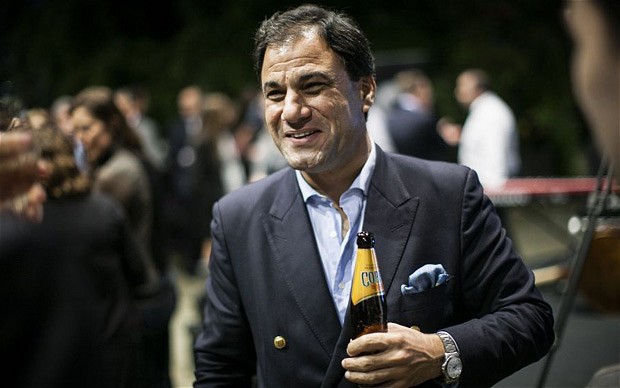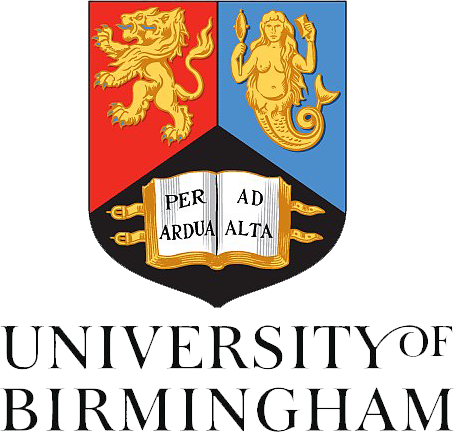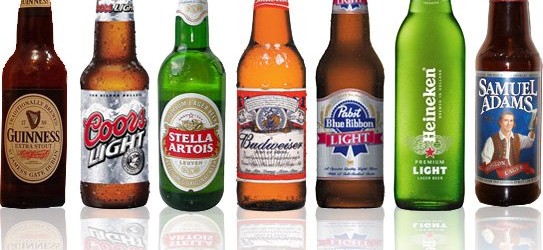 Cobra Beer is one of the fastest selling beverages in its category and is to be found in over 98% of all Indian restaurants in the UK.
Cobra Beer is one of the fastest selling beverages in its category and is to be found in over 98% of all Indian restaurants in the UK.
But without the tenacity of its founder Karan Bilimoria, it could so easily have been a very different story.
Prime Minister David Cameron recently paid a visit to to the brewery in Burton-on-Trent in the West Midlands and Lord Bilimoria advises the PM on Anglo-India relationships.
As a small businessman, Lord Bilimoria understands first-hand what it feels like to take risks as well as borrow money to finance a venture that requires substantial capital but that has phenomenal prospects of being hugely successful.
Lord Bilimoria survived a “pre-pack administration” after his Cobra Beer company’s highly-geared operating model came unstuck in the global financial crisis in 2009. “That was a horrible episode,” he recalls.
“We came very close to losing everything but managed against all the odds to restructure the company, form the joint venture and save the brand and the business. Next year will be Cobra’s 25th anniversary, and I have nearly lost the business three times on that journey. Each time, I have been lucky in that I have been able to get through those crises and I hope I have learnt from the mistakes I’ve made.”
Lord Bilimoria comes from a prominent Zoroastrian Parsee family in Hyderabad, India with strong military and business connections and came to the UK 30 years ago in order to qualify as a chartered accountant at Ernst & Young.
But Lord Bilimoria’s entrepreneurial instincts were much stronger than settling for a life as a bean counter and he co-founded the company with his friend Arjun Reddy in Fulham, South West London in 1989 when he had £20,000 of student debt. They raised £30,000 of bank loans to fund their vision of a less gassy lager that could be enjoyed with Indian food.
And Cobra Beer was born.
The first Zoroastrian to have been made a peer in 2006, Lord Bilimoria believes the UK’s banks should be doing much more to help small and medium-sized enterprises (SMEs) – a familiar message that continues to fall on deaf ears.
“Our biggest problem throughout the years as a growing business was raising money. It’s ironic that banks were able to take huge risks in areas that collapsed but aren’t willing to take relatively tiny risks with growing small businesses. They should be lending to them far more than they’re doing. I hear regularly from small businesses that they’re struggling to raise finance.
“What’s ironic is that the Government controls some of our biggest banks but still can’t seem to force them to lend to SMEs.”
 Lord Bilimoria also wants more government incentives for small business to create employment, and says the Government should extend its business-loan guarantees activities.
Lord Bilimoria also wants more government incentives for small business to create employment, and says the Government should extend its business-loan guarantees activities.
“Having some really serious National Insurance breaks would help,” he says. “There are already some but I think they could go much further. The Government could also do more on capital allowances to encourage businesses to invest more.”
He has approached the Government with an idea for it to stage an annual competition to give small businesses free places on business school courses.
“I’ve done such courses and they were invaluable at getting outside the business and interacting with other entrepreneurs. Companies that attend those sort of courses do grow faster. Ideally, the Government should be having a competition where hundreds of businesses a year get to go on these programmes. The benefits to the economy would be huge,” he claims.
In the run up to the General Election in 2015, clearly all parties want to be seen as the friend of business and particularly small business but Lord Bilimoria’s idea is unlikely to see the light of day as the parties appear distracted by the swing to nationalism evidenced by the recent success of UKIP in the local elections and are focused on trying to keep voters on side with respect to arguments over immigration rather than support for small business.
Lord Bilimoria was recently appointed to succeed Sir Dominic Cadbury as Chancellor of Birmingham University and he wrote to me when I congratulated him, saying: “It is such an honour to have been appointed as Chancellor of the University of Birmingham – I am truly humbled. I am enormously looking forward to the role and it will be such a privilege. It is also particularly special to me given that my Mother, Uncle and Grandfather all graduated from the University of Birmingham!
“The University of Birmingham is a wonderful institution with an illustrious history and has in recent years continued to go from strength to strength – I am following such amazing individuals as Chancellor, including my immediate predecessor, Sir Dominic Cadbury and I am looking forward very much to participating and contributing as best as I can.”
 I’ve no doubt that Lord Bilimoria will be a beacon of inspiration for many people who need encouragement to become entrepreneurs and continue to make the UK one of the most innovative countries in the world in which to do business.
I’ve no doubt that Lord Bilimoria will be a beacon of inspiration for many people who need encouragement to become entrepreneurs and continue to make the UK one of the most innovative countries in the world in which to do business.
But attracting and retaining talent sits at the heart of any such economic boom. And this is an area of concern for Lord Bilimoria, who points to current immigration measures that are effectively closing the door on talent coming into the UK.
In his new role at Birmingham University, it’s clear to him that current Home Office rules are deterring foreign students from enrolling and this is has led to a 25% reduction of Indian students coming to the UK in order to study here, with the overall number of foreign students falling by one per cent.
“Our immigration policies are not working. Foreign students are not immigrants. The vast majority return to their country. We should also be encouraging foreign entrepreneurs to come and set up their businesses in this country. This country wouldn’t be one of the top 10 economies in the world without immigration.
“We need a much more balanced approach to immigration. We need to look at all the immigration that benefits us and stop the immigration that’s harming us,” he warns.
However, Lord Bilimoria is optimistic about the state of British entrepreneurship.
 “Thirty years ago, when I arrived as a student from India, entrepreneurship was quite frankly looked down upon,” he says. “It had an image of Del Boy and second-hand-car salesmen.
“Thirty years ago, when I arrived as a student from India, entrepreneurship was quite frankly looked down upon,” he says. “It had an image of Del Boy and second-hand-car salesmen.
“Now, there’s a culture where it is celebrated and cool to be an entrepreneur in Britain. People aspire to be entrepreneurs.
“Just about every entrepreneur has had successes and failures. It’s par for the course, as long as you can learn from your mistakes, pick yourself up and carry on. That’s the key thing. The most important thing is how you deal with failure.”
He learnt that lesson in 2009, when Cobra Beer went into administration with reported debts of £70m. Molson Coors paid a reported £14m for its joint-venture rescue, which gives it 50.1pc and Lord Bilmoria and other shareholders the remainder.
“We had too much debt,” he admits. “In the times when brand value was being created and growth had a lot of value, being highly geared was all right, but the moment the financial crisis hit, cash didn’t just become king, it became emperor. Being a highly geared company was a huge disadvantage.”
Having learnt that hard lesson, the Cobra Partnership is focusing on profitability as well as growth. Profits have risen from £4.46m to £7.68m since 2010, while turnover is up from £47.5m to £58.4m.
Secured creditors of the old company have been settled, says Lord Bilimoria, promising that unsecured creditors will be settled over the course of the joint venture. Cobra’s turnover in the first four months of this year is up 20% on the same period of last year and the brand is growing from strength to strength.
The previous occasions when Lord Bilimoria almost lost the company were very different, he explains. “One was a strategic investment when it was raising finance from a potential backer two weeks before Lehman Brothers collapsed in 2008.
“The other was a boycott of Cobra’s beer by Indian restaurants in 1998 after an article in a trade magazine caused a “war of words over beer”.
Today, the future success of the Cobra Beer brand is linked to the strength and global reach of Molson Coors, which has 2,000 UK workers and four British breweries.
A big area for expansion for the brand is deeper penetration of pubs and bars where currently it has only very small distribution.
“The next five years will see enormous expansion in that area,” predicts Lord Bilimoria.
And he’s also confident that the Cobra brand will also do well as an export beer too, particularly in territories as diverse as India, Chile, Japan, Australia and New Zealand where the beer market is strong.
 Currently in Canada, the home of Molson Coors, the Cobra brand is small but there are plans to reverse that too.
Currently in Canada, the home of Molson Coors, the Cobra brand is small but there are plans to reverse that too.
But there are no plans on the table to try to take Cobra into the lucrative US market as Budweiser’s King Cobra brand is a registered trademark and owns the intellectual property over the word ‘cobra’ in the context of beer.
However, Lord Bilimoria isn’t that easily put off.
” In the US, a new brand name is probably the only way we can do it but that’s quite normal for multinational companies, and we can have the same look, feel and brand approach.”
And I’ll drink to that!















Recent Comments